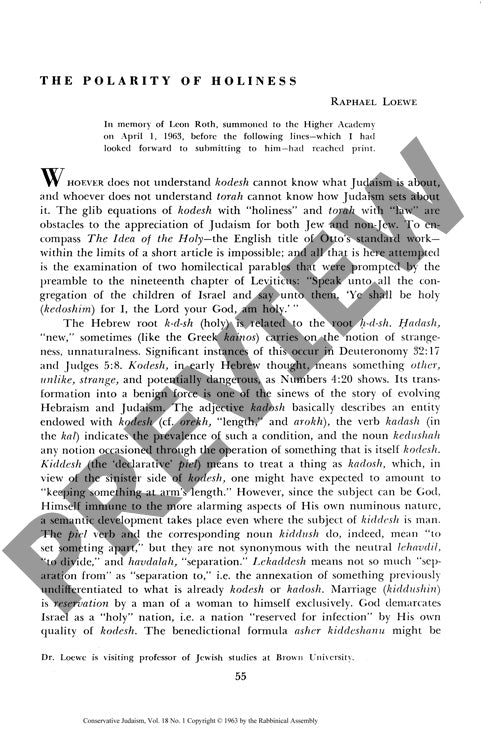The Polarity of Holiness
Couldn't load pickup availability
Jewish holiness (kodesh) embodies a profound theological paradox: it represents both a demanding path of moral discipline and an unearned divine gift of spiritual connection. Through analysis of two key parables attributed to Rabbi Abin in Leviticus Rabbah 24:8, a remarkable semantic evolution emerges - the concept of kodesh transformed from denoting something dangerous and strange into a benign force representing divine otherness. Philological analysis and hermeneutical interpretation of these parables, which interpret Leviticus 19:2 ("Ye shall be holy, for I, the Lord your God, am holy"), reveal complementary rather than competing conceptions of holiness. The first parable frames holiness as negative self-restraint required of humanity due to their susceptibility to temptation, while the second portrays it as positive divine otherness that God shares with Israel through mystical kinship. This duality illuminates a core tension in Jewish theology - Israel's vocation to holiness demands rigorous self-discipline even as it flows from an incontestable divine gift establishing Israel's unique spiritual relationship with God. Close examination of the root k-d-sh and its relationship to otherness and separation demonstrates how Jewish holiness uniquely encompasses both ascetic separation from worldly temptation and participatory connection to divine transcendence.

More Information
-
Physical Description
-
Publication Information
Published 1963
ISBN
-
Publication Credits
Raphael Loewe

